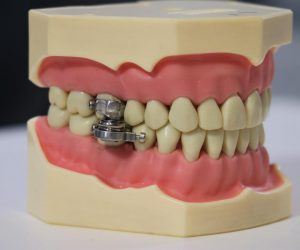
Telomeres: What You Need to Know to Slow the Aging of Your Cells
Dr. Don Colbert – Have you heard of telomeres? While they are not a part of most everyday conversations, they are at the heart of a subject that often is: health and aging. Telomeres are vital to healthy aging, the aging of your cells, and disease prevention. Yet, they are damaged and shortened in your body every day. Is there anything you can do to save your telomeres and slow the aging of your cells?
What Are Telomeres?
Telomeres are protective caps at the ends of chromosomes. Chromosomes are the structures that hold your DNA within the nuclei of every cell in your body.
When the cells in your body divide, the chromosomes replicate, and the telomeres become slightly damaged and shorter. This is a part of the normal living and aging process.
However, some things in our modern environment may be speeding up the shortening of telomeres and thereby speeding up the aging of your cells.
Telomeres and the Aging of Your Cells
Telomere length is literally regarded as a marker for the biological age of a person. This age is not directly correlated to their years of life or chronological age. Some people are much younger “chromosomally” than others. When compared, a person with the same chronological age as another but with shorter telomeres has an increased risk of developing age-related diseases such as Alzheimer’s and cancer, and a shorter life expectancy.
In fact, one 2003 study found a connection between shorter telomeres and increased risk of death from infectious disease and heart disease (1).
Other studies and analyses have found a link between shorter telomeres and coronary heart disease, cancer, brain health, and mortality (2, 3).
What Accelerates Telomere Aging?
If we want to know how to save our telomeres and slow expedited damage and aging of our cells, we must first know what speeds it up.
Genetics and an unhealthy lifestyle are important contributors to telomere shortening. Chronic stress and stress hormones likely play a role. Additionally, many experts believe oxidative stress contributes to quickly shortened telomeres.
Oxidative stress is the accumulation of DNA-damaging free radicals in the body. Free radicals are produced with almost every natural biochemical reaction. This is a part of life. However, free radicals and oxidative stress are increased with environmental pollutants, smoking, UV damage, alcohol intake, and more.
On the other hand, a healthy diet loaded with antioxidants decreases free radicals.
Luckily, recent studies suggest that telomeres can change (for better or worse) faster than previously thought. You may even be able to change the speed at which your telomeres shorten in just 1-6 months with a healthier lifestyle.
Telomere research, lengthening, and aging reversal (with telomere elongation) are all emerging parts of science. What’s more, researchers aren’t sure that telomere lengthening directly implies an improvement in overall health and aging trajectory…but it does make sense that it would, at least hypothetically.
How Can You Take Care of Your Telomeres and Slow the Aging of Your Cells?
There are 3 lifestyle areas on which to focus for better telomere health: diet, exercise, and stress management.
In fact, one small study in 2013 studied the telomere length of 10 men with low-risk prostate cancer. During the study, they make lifestyle changes and started:
- eating health
- exercising regularly
- managing stress through yoga and support groups
They were then compared to 25 participants with low-risk prostate cancer who didn’t make these lifestyle changes. The 10 who made the changes had longer telomeres five years later. This was a very small study, only involving men, but a good start that shows more research is warranted (4).
Here are some details of the 3 keys areas:
1. Diet
A diet that is focused on antioxidant and anti-inflammatory foods such as the Keto Zone Diet, may play a role in determining the length of your telomeres. By increasing antioxidants and anti-inflammatory foods like extra-virgin olive oil, avocados, vegetables, fermented vegetable powders, and other healthy foods, it’s postulated that you can improve telomere health and the aging of your brain.
Next, a 2018 study found that eating more fiber was correlated with longer telomere lengths! It likely has to do with fiber’s role beyond digestion: improved blood glucose, cholesterol, hormone balance, immune support, and more. This study involved 5000 adults (5).
2. Exercise
Exercise can improve overall health, help you control weight, reduce inflammation, and reduce oxidative stress.
A 2017 study looked at the association between exercise and telomere length in thousands of men and women in the United States. Those who participated in high levels of activity had significantly longer telomeres than those who did no, low level, or medium levels of activity. Interestingly, the low and medium levels of activity were about the same in terms of telomere length (6).
Another study found that young adults who engage in high levels of aerobic activities and had more muscle endurance had longer telomeres than those who didn’t (7).
3. Stress Management
Your stress hormones can actually increase oxidative stress. When this is a chronic issue, it can result in DNA-damage and possibly shorter telomeres.
One study of women who cared for a chronically ill-child found that they had shorter telomeres, reduced telomerase activity, and more oxidative stress than those caring for healthy children (8). The researchers categorized these women as having chronically high-stress levels.
Another recent study found that men and women who were exposed to stressors AND responded with increased cortisol had more telomere shortening in the years that followed than those who didn’t (9).
One other study by the ReSource Project evaluated telomere length, brain structure, and cerebral thickness in the brain. The researchers found that the aging of our cells and our biological age appears to change more quickly than previously thought. They can vary within just three months. What’s more, if the telomeres changed in length, this was associated with structural changes in the brain. If telomeres lengthened, the cerebral cortex thickened; if they shortened, the brain’s gray matter was reduced in size. Therefore, short-term telomere changes can have effects on brain structure and reflect the fluctuations in the body’s health and aging status (10).
Stress Reduction and Sleep
So, how can you reduce stress within a stressful world? There are many ways! In this post, 9 Ways to Reduce Cortisol Naturally, we cover how you can incorporate simple lifestyle habits to reduce your cortisol stress reaction.
One of the most potent habits is sleep.
One 2019 study of just over 400 people found that insufficient sleep was associated with premature telomere shortening (11).
While more research needs to be done, all signs point to a healthy lifestyle with a high-antioxidant diet, exercise, stress management, and sleep are important to slow the aging of our cells and support overall health.
Bottom Line
All this data is actually very good news. What you’re already doing in trying to improve your health with healthy eating, exercise, and stress management can actually slow the aging of your cells! So, don’t stop! Keep working toward a healthy lifestyle, and keep taking care of your one and only body.
And, if you need help getting started with the Keto Zone Diet, try our FREE Keto Zone 21-Day-Challenge today!






